Andrei Ilie
Bolt Technology, University of Bucharest
Traffic4cast at NeurIPS 2022 -- Predict Dynamics along Graph Edges from Sparse Node Data: Whole City Traffic and ETA from Stationary Vehicle Detectors
Mar 14, 2023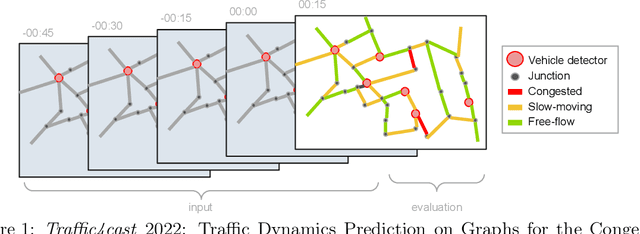

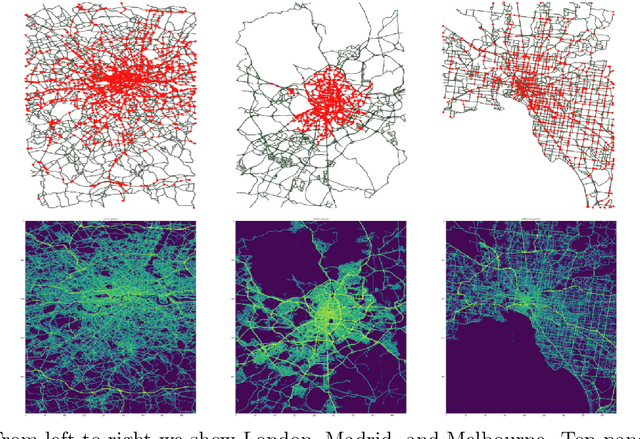
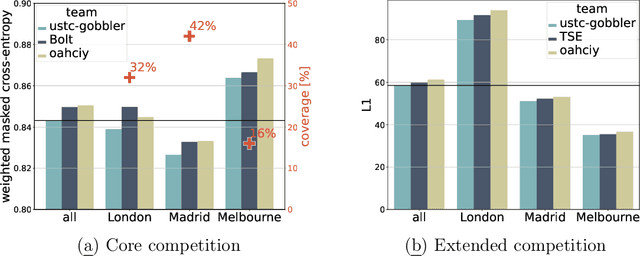
Abstract:The global trends of urbanization and increased personal mobility force us to rethink the way we live and use urban space. The Traffic4cast competition series tackles this problem in a data-driven way, advancing the latest methods in machine learning for modeling complex spatial systems over time. In this edition, our dynamic road graph data combine information from road maps, $10^{12}$ probe data points, and stationary vehicle detectors in three cities over the span of two years. While stationary vehicle detectors are the most accurate way to capture traffic volume, they are only available in few locations. Traffic4cast 2022 explores models that have the ability to generalize loosely related temporal vertex data on just a few nodes to predict dynamic future traffic states on the edges of the entire road graph. In the core challenge, participants are invited to predict the likelihoods of three congestion classes derived from the speed levels in the GPS data for the entire road graph in three cities 15 min into the future. We only provide vehicle count data from spatially sparse stationary vehicle detectors in these three cities as model input for this task. The data are aggregated in 15 min time bins for one hour prior to the prediction time. For the extended challenge, participants are tasked to predict the average travel times on super-segments 15 min into the future - super-segments are longer sequences of road segments in the graph. The competition results provide an important advance in the prediction of complex city-wide traffic states just from publicly available sparse vehicle data and without the need for large amounts of real-time floating vehicle data.
Large scale traffic forecasting with gradient boosting, Traffic4cast 2022 challenge
Oct 31, 2022Abstract:Accurate traffic forecasting is of the utmost importance for optimal travel planning and for efficient city mobility. IARAI (The Institute of Advanced Research in Artificial Intelligence) organizes Traffic4cast, a yearly traffic prediction competition based on real-life data [https://www.iarai.ac.at/traffic4cast/], aiming to leverage artificial intelligence advances for producing accurate traffic estimates. We present our solution to the IARAI Traffic4cast 2022 competition, in which the goal is to develop algorithms for predicting road graph edge congestion classes and supersegment-level travel times. In contrast to the previous years, this year's competition focuses on modelling graph edge level behaviour, rather than more coarse aggregated grid-based traffic movies. Due to this, we leverage a method familiar from tabular data modelling -- gradient-boosted decision tree ensembles. We reduce the dimensionality of the input data representing traffic counters with the help of the classic PCA method and feed it as input to a LightGBM model. This simple, fast, and scalable technique allowed us to win second place in the core competition. The source code and references to trained model files and submissions are available at https://github.com/skandium/t4c22 .
EvoBA: An Evolution Strategy as a Strong Baseline forBlack-Box Adversarial Attacks
Jul 12, 2021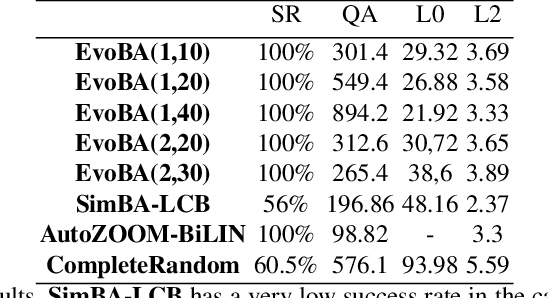
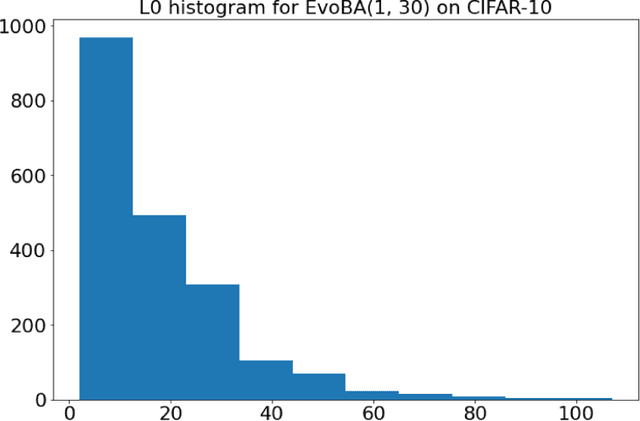
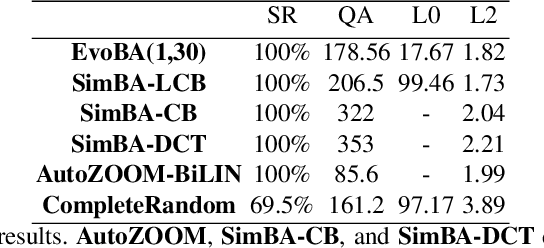
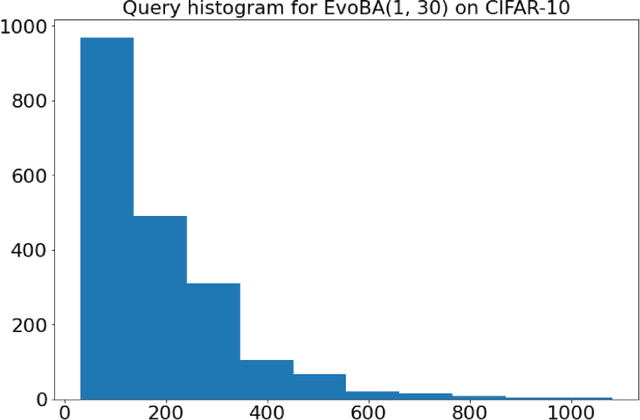
Abstract:Recent work has shown how easily white-box adversarial attacks can be applied to state-of-the-art image classifiers. However, real-life scenarios resemble more the black-box adversarial conditions, lacking transparency and usually imposing natural, hard constraints on the query budget. We propose $\textbf{EvoBA}$, a black-box adversarial attack based on a surprisingly simple evolutionary search strategy. $\textbf{EvoBA}$ is query-efficient, minimizes $L_0$ adversarial perturbations, and does not require any form of training. $\textbf{EvoBA}$ shows efficiency and efficacy through results that are in line with much more complex state-of-the-art black-box attacks such as $\textbf{AutoZOOM}$. It is more query-efficient than $\textbf{SimBA}$, a simple and powerful baseline black-box attack, and has a similar level of complexity. Therefore, we propose it both as a new strong baseline for black-box adversarial attacks and as a fast and general tool for gaining empirical insight into how robust image classifiers are with respect to $L_0$ adversarial perturbations. There exist fast and reliable $L_2$ black-box attacks, such as $\textbf{SimBA}$, and $L_{\infty}$ black-box attacks, such as $\textbf{DeepSearch}$. We propose $\textbf{EvoBA}$ as a query-efficient $L_0$ black-box adversarial attack which, together with the aforementioned methods, can serve as a generic tool to assess the empirical robustness of image classifiers. The main advantages of such methods are that they run fast, are query-efficient, and can easily be integrated in image classifiers development pipelines. While our attack minimises the $L_0$ adversarial perturbation, we also report $L_2$, and notice that we compare favorably to the state-of-the-art $L_2$ black-box attack, $\textbf{AutoZOOM}$, and of the $L_2$ strong baseline, $\textbf{SimBA}$.
 Add to Chrome
Add to Chrome Add to Firefox
Add to Firefox Add to Edge
Add to Edge